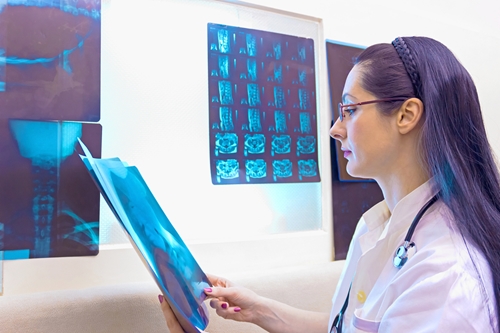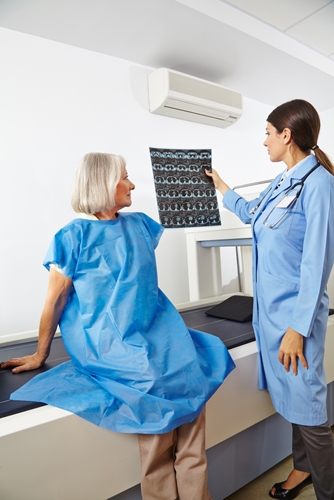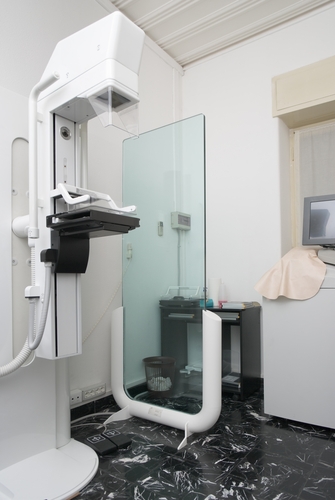A recent study published in the Journal of the National Cancer Institute found no significant association between the use of positron emission tomography and the two-year survival rate in patients with lung and esophageal cancer, leading researchers to postulate that these scans may be overused.
Dr. Mark Healy, a surgery resident in the Department of Surgery at the University of Michigan and member of the school's Center for Healthcare Outcomes & Policy, and a team of investigators analyzed Medicare data from over 100,000 patients suffering from lung or esophageal cancer between 2005 and 2009. The team also examined the frequency of PET use at various hospitals, concluding that there was a statistically significant difference between the lowest versus highest PET-utilizing hospitals.
The study concluded that PET scans may be overused and that efforts to decrease their use are warranted.
"This combination of hospital-based variation without survival benefit suggests potential overuse and that efforts to decrease such overuse are warranted," Healy and his team wrote. "Providers must take note of available data when making clinical imaging decisions to avoid unnecessary overuse."
An Ongoing Debate
This study adds to the existing body of research that addresses a polarizing issue in the field of radiology: the possible overuse of radiation-heavy imaging and its potential for causing cancer.
Most of this debate has centered around computed tomography, but X-rays and PET scans use the same ionizing radiation that can cause DNA damage and possibly lead to cancer, reported CNN.
However, regulatory agencies such as the Food and Drug Administration say patients shouldn't worry. It estimates the possibility of developing fatal cancer through a CT exam with an effective dose of 10 millisieverts is approximately one in 2,000. Still, the issue begets fierce debate among radiologists.
According to a study published in the Journal of the American Medical Association, the number of CT scans per 1,000 patients nearly tripled between 1996 and 2000. The National Council on Radiation Protection and Measurements stipulates that the exposure to radiation has increased more than six-fold between the 1980s and 2006, reports The New York Times.
This increase can be credited to multiple factors, including early detection regimens, higher-quality imaging and the financial incentives paid to doctors and imaging centers via government reimbursement programs. In 2011, HealthCare Business reported that doctors with a financial stake in diagnostic imaging are almost 50 percent more likely to order imaging tests than those with no such incentives. Increasingly, specialists require that patients get scans even before their first visit.
Potential Solutions
A number of measures have been taken to address this issue. Congress in 2014 passed new legislation that established appropriateness criteria, an outline of the risks and benefits associated with medical imaging tests, and required ordering physicians to consult these standards so as to reduce unnecessary testing. Imaging organizations such as the American College of Radiology and the Radiological Society of North America praised the bill.
Some care providers have turned to technology to cut back on unnecessary testing. According to CNN, Massachusetts General Hospital in Boston implemented a decision support system that reduced the rate of unnecessary medical imaging tests from 6 percent in 2006 to 1.5 percent in 2015. A similar statewide program in Minnesota cut the growth rate from 7 percent per year to about 1 percent.
And, the Department of Health and Human Services has addressed the physician reimbursement issue. Medicare now reduces reimbursements by 5 percent for scans performed on machines that don't meet modern standards and are unable to automatically adjust radiation doses.
"The provision is a major step toward appropriate use of medical imaging," Dr. James Borgstede, the RSNA board liaison for national affairs, said in a statement. "If referring physicians embrace this concept, it will provide significant improvement in patient care."
Contact Viztek for more information.
Ronny Bachrach
Latest posts by Ronny Bachrach (see all)
- Konica Minolta Debuts First-of-Its-Kind Digital U-Arm System at AHRA - July 27, 2016
- Researchers Detect Signs Of Stroke Risk Using MRI - June 27, 2016
- Imaging Biz: Q&A with David S. Channin MD: How to Make PACS Patient Centered - June 22, 2016










